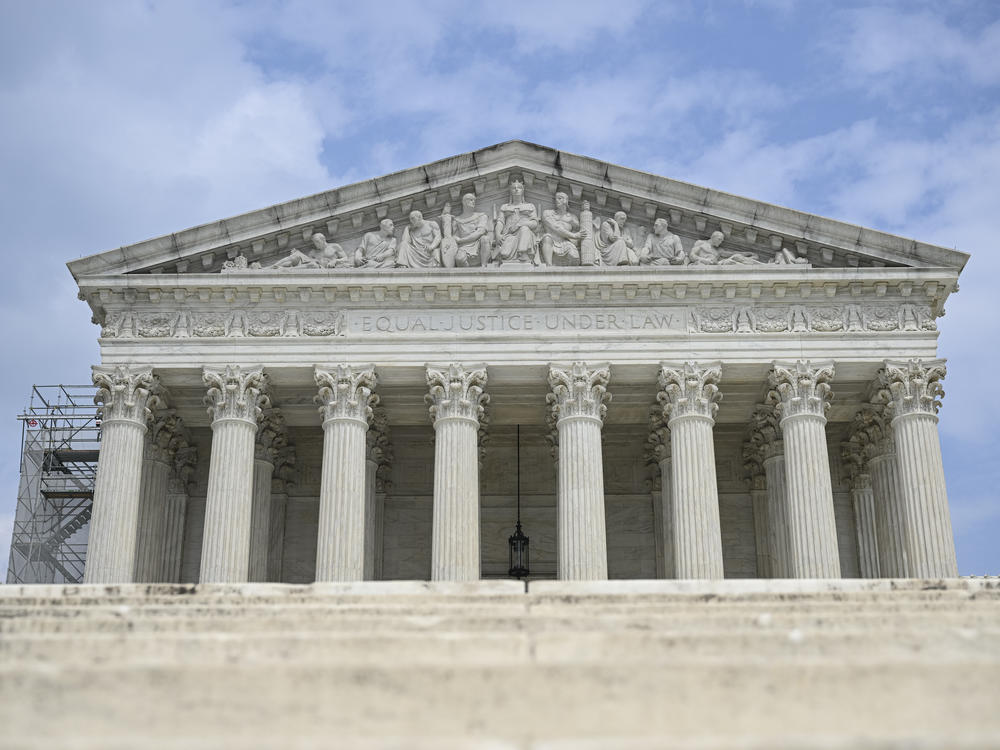Section Branding
Header Content
Alabama asks Supreme Court to aid a delay after June loss in voting case
Primary Content
Alabama is once again asking the Supreme Court to let it keep Republican-drawn congressional districts. In essence, the state is fighting a court order that the high court upheld just months ago.
In June, the court ruled that Alabama's congressional map violated the Voting Rights Act because, in a state with seven congressional districts and a 27% Black population, the GOP-dominated legislature had created just one congressional district in which Black voters are either a majority or close to it.
The court's 5-to-4 decision upheld a unanimous decision by a three-judge panel that included two Trump appointees; the lower court had required the creation of a second majority Black congressional district.
But the state legislature did not do that. Instead it upped the number of Black voters from 30% to 40% in one of the districts.
That prompted a sharp rebuke from the lower court; it accused the state of delaying tactics and deliberately defying its directive and then appointed a special master to draw a new congressional map with two majority Black districts.
The three-judge panel refused to put its order on hold, saying that Alabama's voters should not have to endure another congressional election under an "unlawful map."
Now the state has appealed to the Supreme Court for a second time, seeking to postpone the creation of a new map while it pursues a further appeal. It is apparently hoping to peel off Justice Brett Kavanaugh, who joined with Chief Justice John Roberts, the author of the June opinion, and the courts three liberals, in ordering a second majority Black district. Kavanaugh wrote a concurring opinion in which he suggested that while he agreed with the Roberts opinion for now, "race-based redistricting cannot extend indefinitely into the future."
Indeed, one of the arguments that Alabama is pursuing on appeal now is the claim that the Voting Rights Act, meant to deal with the dilution of the Black vote, is unconstitutional. Should the Supreme Court allow that claim to proceed now, it would certainly delay past the 2024 election any implementation of a new congressional map with two majority Black districts.
On Tuesday, Justice Clarence Thomas, the justice charged with overseeing the appeals from Alabama, ordered a response to be filed by Monday to the state's request for delay.
Copyright 2023 NPR. To see more, visit https://www.npr.org.

